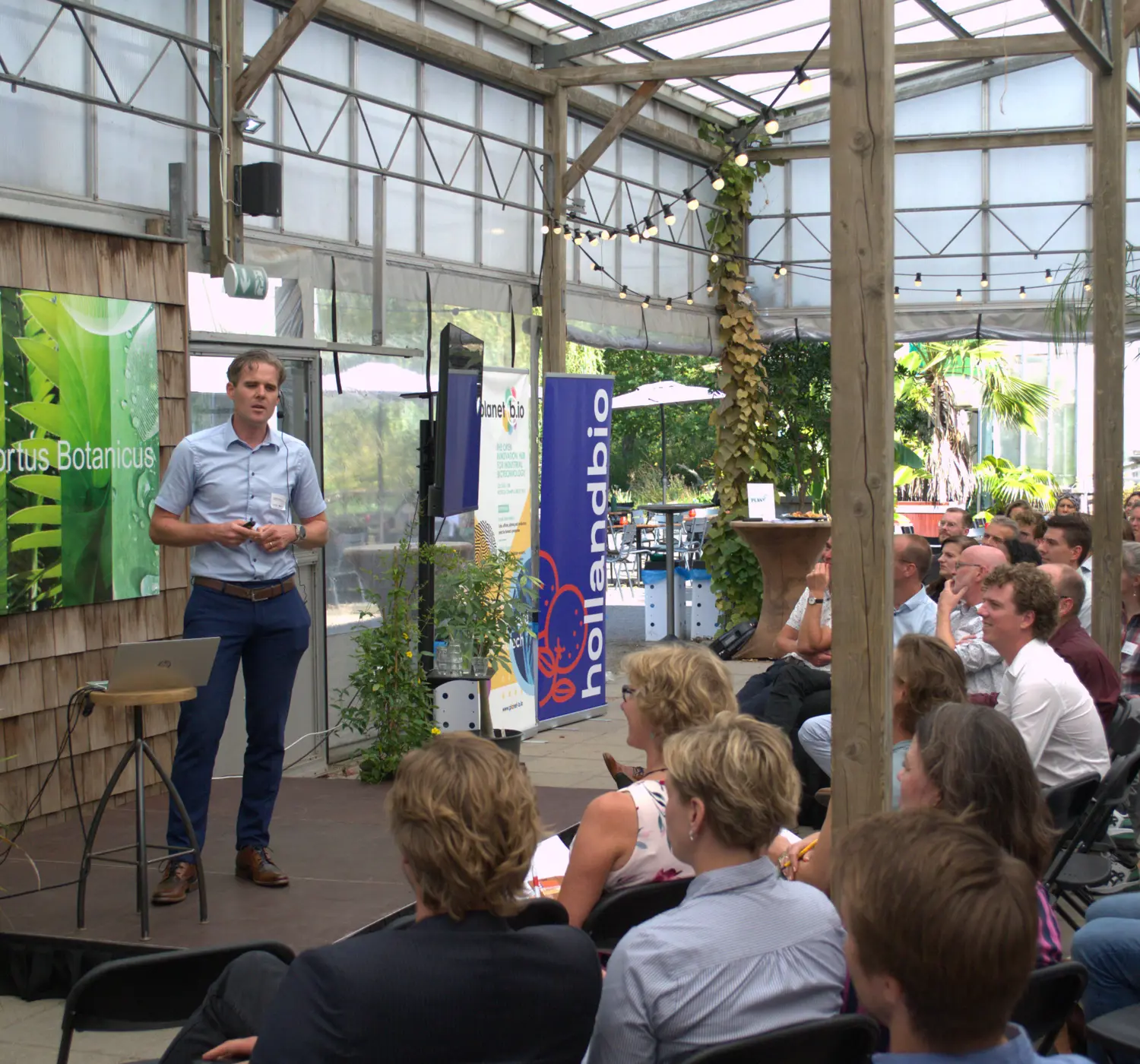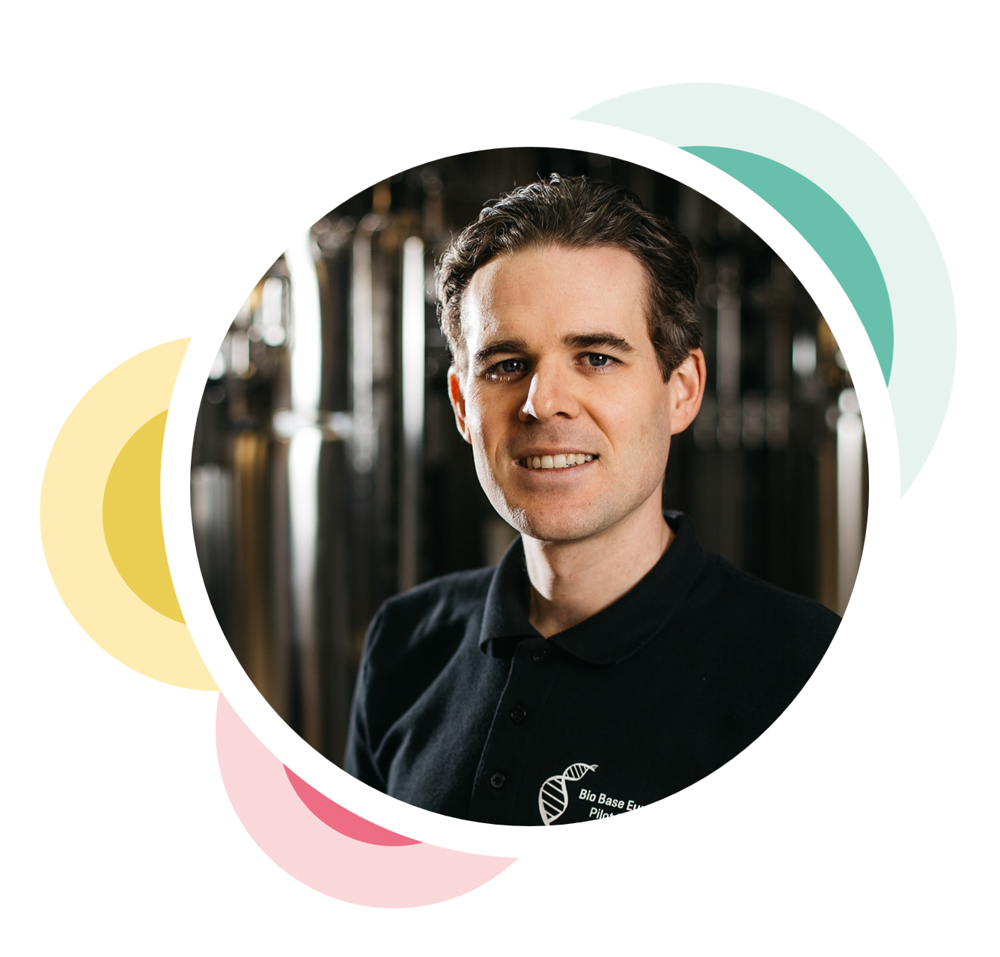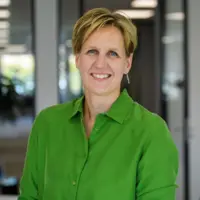14-10-2025
One year later: Insights from Scale-up frontrunners | Hendrik Waegeman (BBEU) on the next steps for biotech innovation

It has been one year since Planet B.io hosted the Let’s Talk Bio Scale-up event! Back then, we brought together five key scale-up frontrunners to share their insights on going from grams to tonnes and navigating the 'valley of death.'
Now, one year later, we reconnect with each of these frontrunners to learn how their organizations have progressed in the past year.
First up is Hendrik Waegeman, head of business operations from Bio Base Europe Pilot Plant, who shares last year’s improvements and makes a comparison between a fermentor and a dinosaur?!

What has been the biggest change or milestone over the past year?
"That is for us without a doubt the arrival of the 75 m³ fermenter. We announced the fermenter as our dinosaur with our Fermentation Park video. Did you know that we even did some fact-checking? We investigated whether the comparison between a dinosaur and a fermenter is actually holds by comparing typical physical characteristics found in fermenters and dinosaurs: metabolism, oxygen and calorie consumption, and the pressure build-up and how a dinosaur deals with that."
Check out the Fermentation Park video here
What a fun way to combine humour and upscaling! How did the first runs go?
"During the scale-up event, I showed a photo of the 75 m³ fermenter being hoisted into the building; the fermenter had not yet been tested at that point. Since November 2024, the fermenter has been fully operational. Vivici had the honour of being our first customer, those runs went smoothly and to everyone’s satisfaction. In the meantime, we’ve also produced batches for other clients, and the positive results have been widely shared. This new capability offers our customers demonstration-scale opportunities while further strengthening our position as a leading pilot plant in Europe. Our project pipeline is looking strong."
Have there been any other major developments?
"Absolutely. We are currently building our own wastewater treatment plant, which is currently under permit review. Today, all wastewater is collected and processed externally – sometimes requiring as many as five to ten truckloads per day. Once our own treatment plant is operational, this will no longer be necessary leading to significant cost savings as well as improved safety and logistics. We expect the wastewater treatment facility to be up and running in about two years’ time."
These are already considerable investments! Is there more on the horizon?
"The largest investments to date have resulted from the COVID recovery plans, an opportunity that is unlikely to arise again any time soon. If we were to invest now, it would be smaller projects, focusing on optimising what we already have or which are needed to enable specific projects and new technologies.
A concrete example is the trend towards continuous fermentation, which I mentioned during my presentation. It is now possible to run continuously up to 1,500 litres with a specific set-up that we have designed and built for this purpose. We are now investigating whether we will expand this to a larger scale with a dedicated set-up, if this trend continues."
“The 75 m³ fermenter really is the missing link for customers to bring their products to the market.”
It’s been quite a turbulent year overall. Have you noticed the effects?
"Politics certainly played a role. In the first quarter, many companies adopted a wait-and-see approach due to uncertainty around regulations at for example the FDA (U.S. Food and Drug Administration). This made it difficult to make decisions on runs related to regulatory dossiers. Fortunately, demand picked up again in the second quarter."
During the scale-up event, you mentioned that you saw three trends. Has another focus emerged since then?
"The trends I mentioned then were 1) continuous biomanufacturing in up- and downstream processing, 2) alternative feedstocks, and 3) fermentation from “black box” to “glass box”, these trends remain strong. In addition, we are now seeing a new focus on more efficient and therefore cheaper downstream processing (DSP). Many of the projects we are scaling up are still too expensive; start-ups are often optimistic about their projected production costs. By focusing on continuous fermentation and more efficient DSP, we can significantly reduce costs, which is crucial as DSP often represents a major expense.
We already collaborate with DAB.bio on in situ product recovery, and we’ve also developed our own technology: SIR (Solvent Impregnated Resins). This resin selectively binds the product, which can then be released (eluted) using a relatively simple industrial column chromatography setup. This enables highly cost-efficient product purification.
We can also carry out TEAs (Techno-Economic Assessments) to help start-ups estimate their production costs realistically, adjust their expectations, and identify alternative markets or product targets where relevant."
And how does your initiative, the Scale-up Accelerator Network (SAN) fit into this picture?
"We recently launched the Scale-up Accelerator Network (SAN), which connects companies with independent, experienced industry experts who provide strategic advice on scaling up. Companies using this service through us can convert part of their investment into credits for their scale-up activities. This initiative helps start-ups plan their scale-up trajectory strategically and cost-effectively."
What has been your most important learning over the past year?
"The confirmation that the 75 m³ fermenter really is the missing link for customers to bring their products to the market. We have learned that the first “valley of death” is mainly about technical scale-up, while the second “valley of death” is about being able to carry out initial production in a cost-efficient manner. With our dinosaur, we can now support both of these critical stages."
For more information about the Bio Base Europe Pilot Plant, please visit their website.

